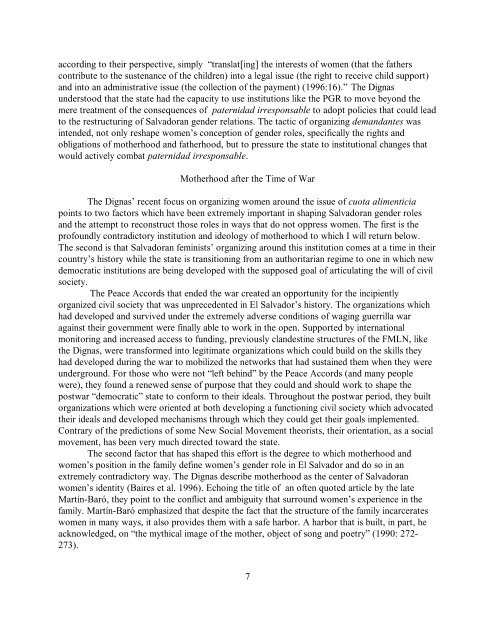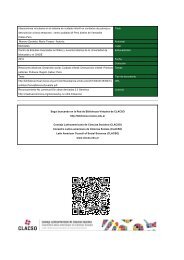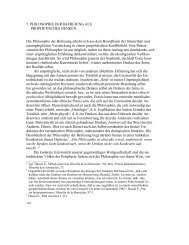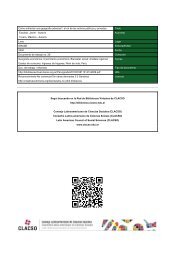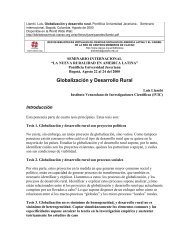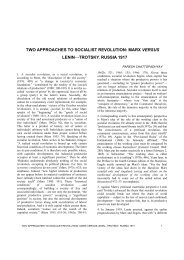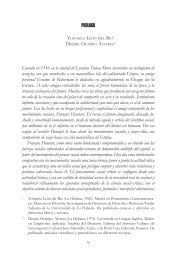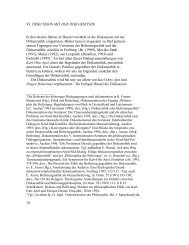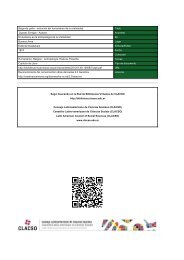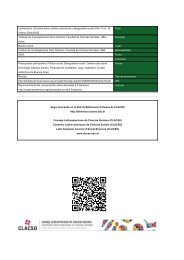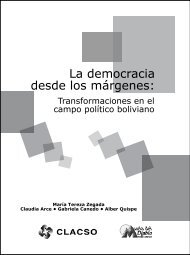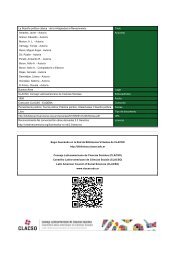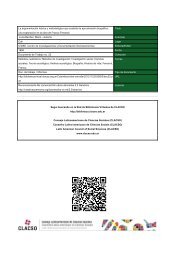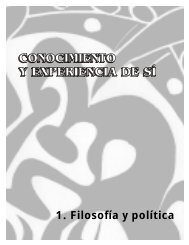Draft Papi, te necesito: Paternidad Irresponsable, La ... - CLACSO
Draft Papi, te necesito: Paternidad Irresponsable, La ... - CLACSO
Draft Papi, te necesito: Paternidad Irresponsable, La ... - CLACSO
You also want an ePaper? Increase the reach of your titles
YUMPU automatically turns print PDFs into web optimized ePapers that Google loves.
according to their perspective, simply “translat[ing] the in<strong>te</strong>rests of women (that the fathers<br />
contribu<strong>te</strong> to the sus<strong>te</strong>nance of the children) into a legal issue (the right to receive child support)<br />
and into an administrative issue (the collection of the payment) (1996:16).” The Dignas<br />
understood that the sta<strong>te</strong> had the capacity to use institutions like the PGR to move beyond the<br />
mere treatment of the consequences of pa<strong>te</strong>rnidad irresponsable to adopt policies that could lead<br />
to the restructuring of Salvadoran gender relations. The tactic of organizing demandan<strong>te</strong>s was<br />
in<strong>te</strong>nded, not only reshape women’s conception of gender roles, specifically the rights and<br />
obligations of motherhood and fatherhood, but to pressure the sta<strong>te</strong> to institutional changes that<br />
would actively combat pa<strong>te</strong>rnidad irresponsable.<br />
Motherhood af<strong>te</strong>r the Time of War<br />
The Dignas’ recent focus on organizing women around the issue of cuota alimenticia<br />
points to two factors which have been extremely important in shaping Salvadoran gender roles<br />
and the at<strong>te</strong>mpt to reconstruct those roles in ways that do not oppress women. The first is the<br />
profoundly contradictory institution and ideology of motherhood to which I will return below.<br />
The second is that Salvadoran feminists’ organizing around this institution comes at a time in their<br />
country’s history while the sta<strong>te</strong> is transitioning from an authoritarian regime to one in which new<br />
democratic institutions are being developed with the supposed goal of articulating the will of civil<br />
society.<br />
The Peace Accords that ended the war crea<strong>te</strong>d an opportunity for the incipiently<br />
organized civil society that was unpreceden<strong>te</strong>d in El Salvador’s history. The organizations which<br />
had developed and survived under the extremely adverse conditions of waging guerrilla war<br />
against their government were finally able to work in the open. Suppor<strong>te</strong>d by in<strong>te</strong>rnational<br />
monitoring and increased access to funding, previously clandestine structures of the FMLN, like<br />
the Dignas, were transformed into legitima<strong>te</strong> organizations which could build on the skills they<br />
had developed during the war to mobilized the networks that had sustained them when they were<br />
underground. For those who were not “left behind” by the Peace Accords (and many people<br />
were), they found a renewed sense of purpose that they could and should work to shape the<br />
postwar “democratic” sta<strong>te</strong> to conform to their ideals. Throughout the postwar period, they built<br />
organizations which were orien<strong>te</strong>d at both developing a functioning civil society which advoca<strong>te</strong>d<br />
their ideals and developed mechanisms through which they could get their goals implemen<strong>te</strong>d.<br />
Contrary of the predictions of some New Social Movement theorists, their orientation, as a social<br />
movement, has been very much direc<strong>te</strong>d toward the sta<strong>te</strong>.<br />
The second factor that has shaped this effort is the degree to which motherhood and<br />
women’s position in the family define women’s gender role in El Salvador and do so in an<br />
extremely contradictory way. The Dignas describe motherhood as the cen<strong>te</strong>r of Salvadoran<br />
women’s identity (Baires et al. 1996). Echoing the title of an of<strong>te</strong>n quo<strong>te</strong>d article by the la<strong>te</strong><br />
Martín-Baró, they point to the conflict and ambiguity that surround women’s experience in the<br />
family. Martín-Baró emphasized that despi<strong>te</strong> the fact that the structure of the family incarcera<strong>te</strong>s<br />
women in many ways, it also provides them with a safe harbor. A harbor that is built, in part, he<br />
acknowledged, on “the mythical image of the mother, object of song and poetry” (1990: 272-<br />
273).<br />
7


